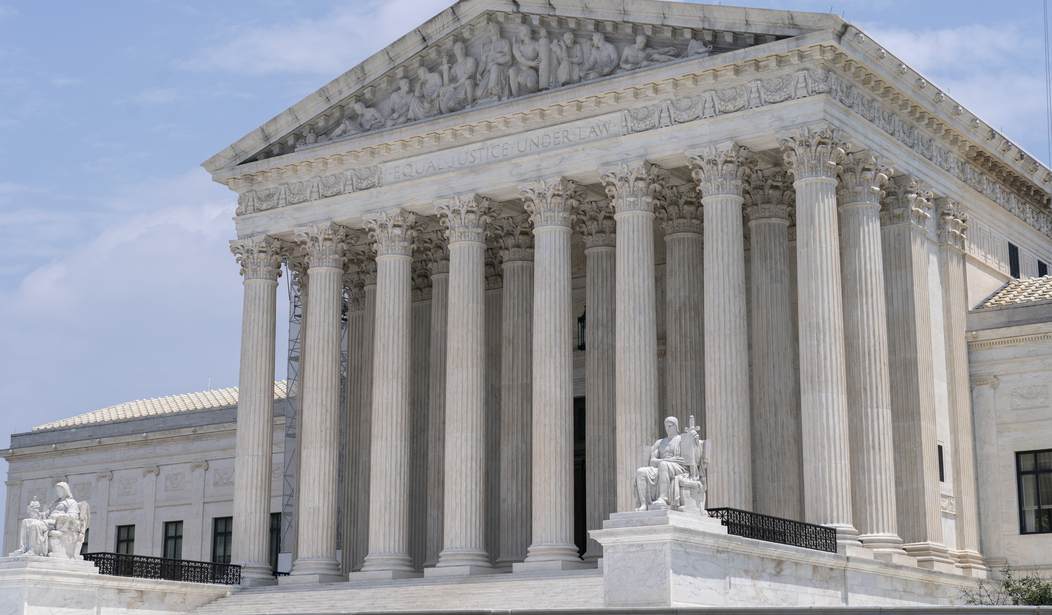Former President Trump has filed a request that the Supreme Court overrule the Colorado Supreme Court and put his name back on the ballot. Just over two weeks ago, the Colorado Supreme Court ruled that Trump’s name would be removed from the ballot on the grounds that he had violated the 14th Amendment. Trump’s attorneys said the day it was announced that they would be appealing and now they have.
Former President Donald Trump on Wednesday asked the Supreme Court to overturn a state court ruling in Colorado that said he is ineligible to appear on the state primary ballot because of his actions leading up to the Jan. 6, 2021, attack on the U.S. Capitol.
The Colorado Republican Party had already filed its own appeal. Based on language in the state court ruling, Trump for now remains on the Colorado ballot until the Supreme Court acts.
The Colorado Supreme Court based its Dec. 19 ruling on language in the Constitution’s 14th Amendment that prohibits those who “engaged in insurrection” from running for various federal offices. The case raises various novel legal questions, including whether the language applies to those running for president and who gets to decide whether someone engaged in insurrection.
I’m going to quote from the filing (posted in full by the Washington Post) at some length because this is the argument that Trump’s attorneys are making on his behalf. Here’s how it opens:
It is a “ ‘fundamental principle of our representative democracy,’ embodied in the Constitution, that ‘the people should choose whom they please to govern them.’ ” U.S. Term Limits, Inc. v. Thornton, 514 U.S. 779, 783 (1995) (quoting Powell v. McCormack, 395 U.S. 486, 547 (1969)). Petitioner President Donald J. Trump (“President Trump”) is the leading candidate for the Republican Party nomination for President of the United States.1 Over 74 million Americans voted for President Trump in the 2020 general election, including more than 1.3 million voters in the State of Colorado.2 Yet, on December 19, 2023, the Colorado Supreme Court ordered President Trump removed from the presidential primary ballot—a ruling that, if allowed to stand, will mark the first time in the history of the United States that the judiciary has prevented voters from casting ballots for the leading major-party presidential candidate.
A few paragraphs later, the filing points out how the underlying argument used in Colorado has been advanced around the country:
Over the last few months, more than 60 lawsuits or administrative challenges have been filed seeking to keep President Trump from appearing on the presidential primary or general-election ballot. The common theory behind these lawsuits and challenges is that President Trump is somehow disqualified from holding office under section 3 of the Fourteenth Amendment because of an allegation that he “engaged in insurrection” on January 6, 2021.5 Courts considering these claims—including state supreme courts in Michigan and Minnesota—have all rejected them for varying reasons, contrary to the Colorado Supreme Court’s ruling of December 19, 2023, which ordered the Colorado Secretary of State to exclude President Trump from the presidential primary ballot. The court stayed its ruling until January 4, 2024, and announced that the stay would automatically continue if President Trump sought review in this Court before that date.
The filing then gets into the specifics of how the court determined that Trump had engaged in an insurrection.
The district court also relied on testimony from Peter Simi, a professor of sociology at Chapman University, whom the district court qualified as an expert on political extremism and “the communication styles of far-right political extremists.”18 The district court based its finding that President Trump intended to incite violence on January 6, 2021, on Simi’s analysis of Trump’s “history with political extremists,”19 as well as Simi’s opinion that Trump “developed and employed a coded language based in doublespeak that was understood between himself and far-right extremists, while maintaining a claim to ambiguity among a wider audience.”20 The district court also relied on Simi’s testimony in finding that President Trump’s speech at the Ellipse on January 6, 2021, was specifically intended to provoke a violent response from his audience. Simi conceding that he relied exclusively on public speeches and the January 6th report to opine on reactions to President Trump’s words; he conducted no research, interviews, or fieldwork of his own…
…the district court used Simi’s testimony to support its factual finding that President Trump intended to incite violence.
But the main thrust of the argument is that Colorado courts have no business making this decision in the first place.
Considering the Constitutional role for Congress in addressing presidential qualifications, it is little surprise that every court except Colorado that has addressed the political question doctrine when presented with the question of determining President Trump’s eligibility has held that question is nonjusticiable and reserved to Congress. Indeed, every federal court that addressed this issue with regard to the eligibility of President Barack Obama, Senator John McCain, and Senator Ted Cruz held that the issue was for Congress and not the federal courts.
There’s more but Trump is asking the Supreme Court to take up the case and reverse the Colorado Supreme Court’s decision. That would effectively put an end to any other state pursuing this.








Join the conversation as a VIP Member